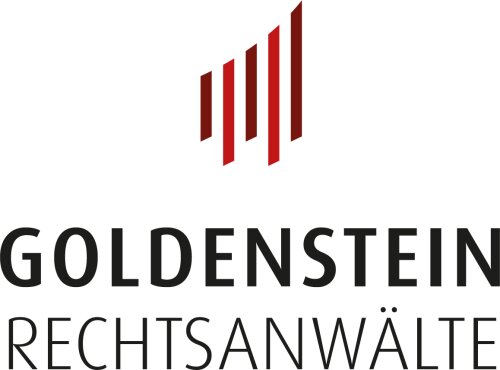Best Housing, Construction & Development Lawyers in Berlin
Share your needs with us, get contacted by law firms.
Free. Takes 2 min.
Free Guide to Hiring a Real Estate Lawyer
List of the best lawyers in Berlin, Germany
About Housing, Construction & Development Law in Berlin, Germany
Berlin, as the capital of Germany, experiences a dynamic and evolving housing and construction environment. Housing, Construction & Development law in Berlin encompasses a range of legal areas including residential and commercial property leasing, construction regulations, planning laws, and urban development. This legal framework is designed to maintain a balance between supporting development, preserving historical architecture, and providing affordable housing to its residents. Compliance with both federal and local legislation is essential for all stakeholders involved in construction and development projects.
Why You May Need a Lawyer
In Berlin, individuals or businesses involved in housing, construction, or development may require legal assistance in several instances. Common situations include disputes over lease agreements, compliance issues with construction permits, challenges regarding zoning laws, and negotiations with contractors and developers. In addition, legal advice might be necessary during property transactions or when addressing neighbor disputes over land use. Securing knowledgeable legal guidance can help avoid costly mistakes and ensure that all activities comply with the relevant legal requirements.
Local Laws Overview
The legal landscape for housing, construction, and development in Berlin is governed by a combination of federal German laws and local regulations specific to Berlin. Key legal elements include the Baugesetzbuch (Building Code), which regulates construction and planning, the Wohnraumgesetz Berlin (Berlin Housing Law), which influences rental legislation, and local zoning plans that dictate land use. Additionally, environmental regulations and historic preservation laws impose further requirements on construction projects to ensure sustainable and sensitive development. Familiarity with these laws is crucial to successfully navigate Berlin’s housing and construction environment.
Frequently Asked Questions
What permits are required for a construction project in Berlin?
Most construction projects in Berlin require a building permit. The type of permit depends on the nature and scale of the construction. Smaller modifications may only require a notification to the building authority, while larger projects will need comprehensive planning approval.
How are rent increases regulated in Berlin?
Berlin has specific rent control measures to prevent excessive rent increases. Rent caps are often enforced to limit the rate of increase. Landlords must comply with these regulations and often are required to justify any increase under the Mietpreisbremse, or "rent brake" law.
What is the Mietendeckel and is it still applicable?
The Mietendeckel was a rent cap law implemented in Berlin to limit rental prices. However, in 2021, it was overturned by Germany's Federal Constitutional Court. As a result, it is no longer applicable, and rent regulation reverted to federal legislation and state-specific laws without the Mietendeckel provisions.
Do tenants have rights during property sales?
In Berlin, tenants have specific rights when the property they are renting is sold. The new property owner must honor existing lease agreements, and tenants usually have a right of first refusal if the property is sold as a condominium.
What are common issues with property boundaries in Berlin?
Disputes over property boundaries can arise due to unclear demarcations in historical properties or overlapping land uses. Engaging a surveyor and a lawyer can help resolve such disputes by accurately defining property lines according to official records.
Is environmental compliance important in construction projects?
Yes, environmental compliance is essential. Berlin’s construction projects must adhere to environmental regulations that protect natural resources and minimize ecological footprints. This includes assessments for environmental impact and sustainable building practices.
How does one appeal a planning decision in Berlin?
Appealing a planning decision involves submitting a formal objection to the planning authority that made the original decision. If unsatisfied with the result, the appeal can be escalated to the higher administrative courts for review.
What responsibilities do landlords have for property maintenance?
Landlords in Berlin are obligated to maintain their properties in habitable condition, ensuring that essential utilities, such as heating and water, function properly. They must also address structural and safety issues promptly.
Can construction be done on Sundays in Berlin?
Construction activities are generally restricted on Sundays and public holidays in Berlin to reduce noise pollution and disturbance. Special permits may be required for necessary works on these days.
Are there incentives for sustainable building practices?
Berlin and the broader German federal system offer incentives for sustainable and energy-efficient building practices. These can include tax benefits, grants, or subsidies for projects that incorporate green technologies and construction methods.
Additional Resources
For additional support, individuals can contact local governmental bodies such as the Bezirksamt (District Office) for building permits and compliance information, or the Berliner Mieterverein (Berlin Tenants’ Association) for tenant rights and support. Legal organizations and professional associations like the Berlin Bar Association can assist in finding qualified legal representation in the field of housing and construction.
Next Steps
If you find yourself in need of legal assistance in the field of housing, construction, and development, start by gathering all relevant documentation and details of your situation. Contact a specialized attorney who can offer tailored advice and represent your interests. Consider scheduling a consultation to discuss your needs and explore potential solutions. Additionally, utilize available resources from local organizations to get informed and prepared before taking further action. Being proactive can significantly help in resolving any legal matters effectively.
Lawzana helps you find the best lawyers and law firms in Berlin through a curated and pre-screened list of qualified legal professionals. Our platform offers rankings and detailed profiles of attorneys and law firms, allowing you to compare based on practice areas, including Housing, Construction & Development, experience, and client feedback.
Each profile includes a description of the firm's areas of practice, client reviews, team members and partners, year of establishment, spoken languages, office locations, contact information, social media presence, and any published articles or resources. Most firms on our platform speak English and are experienced in both local and international legal matters.
Get a quote from top-rated law firms in Berlin, Germany — quickly, securely, and without unnecessary hassle.
Disclaimer:
The information provided on this page is for general informational purposes only and does not constitute legal advice. While we strive to ensure the accuracy and relevance of the content, legal information may change over time, and interpretations of the law can vary. You should always consult with a qualified legal professional for advice specific to your situation.
We disclaim all liability for actions taken or not taken based on the content of this page. If you believe any information is incorrect or outdated, please contact us, and we will review and update it where appropriate.












